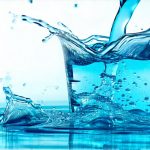Staying adequately hydrated is fundamental to overall health and well-being. Water plays countless vital roles within our bodies – from regulating temperature and transporting nutrients, to lubricating joints and flushing out waste products. However, the concept of “staying hydrated” often gets simplified into simply drinking more water, without considering how we hydrate or potential impacts on other crucial organs like the kidneys. While increasing fluid intake is generally beneficial, doing so incorrectly can place undue stress on these hardworking filters, potentially leading to imbalances and even health complications. It’s about finding a balance – supporting optimal hydration while respecting your body’s natural processes and safeguarding kidney function.
Many people mistakenly believe that copious amounts of water are always the answer, driven by generalized recommendations or fitness trends. This overlooks individual needs, activity levels, climate conditions, and underlying health status. The kidneys are remarkably adaptable organs, but they have limits. Overhydration, though less common than dehydration, can dilute electrolytes, disrupt fluid balance, and force the kidneys to work harder to maintain homeostasis. Understanding these nuances is key to achieving healthy hydration without inadvertently burdening this essential organ system. This article will explore practical strategies for staying properly hydrated while prioritizing kidney health.
The Science of Hydration & Kidney Function
Hydration isn’t solely about water intake; it’s about maintaining a delicate fluid balance within the body. This balance is regulated by complex hormonal systems and, crucially, by the kidneys. These bean-shaped organs filter waste products from the blood, regulate electrolyte levels (sodium, potassium, chloride), and control fluid volume. When we drink water, the kidneys assess how much fluid is needed versus how much needs to be excreted. They achieve this through a hormone called vasopressin (also known as antidiuretic hormone or ADH). ADH signals the kidneys to conserve water when we’re dehydrated, and allows for more excretion when we’re adequately hydrated.
The problem arises when this system is overwhelmed – either by sudden surges in fluid intake or chronically high consumption without adequate electrolyte replenishment. Overhydration can lead to hyponatremia, a condition where sodium levels become dangerously low. This happens because excess water dilutes the electrolytes in your blood, and the kidneys struggle to keep up with the necessary regulation. Symptoms of hyponatremia can range from nausea and headache to confusion, seizures, and even coma in severe cases. It’s important to remember that kidneys are incredibly efficient but they aren’t limitless – they need time to process fluids and maintain balance.
Furthermore, certain medical conditions like kidney disease, heart failure, or liver cirrhosis impact the kidneys’ ability to regulate fluid balance. Individuals with these conditions must be particularly mindful of their hydration strategies and should consult with a healthcare professional for personalized guidance. Simply drinking more water is not always the best approach – it needs to be tailored to individual circumstances.
Electrolyte Balance & Hydration Support
Maintaining an adequate electrolyte balance is just as important as staying hydrated. Electrolytes are lost through sweat, urine, and even normal bodily functions. When we drink excessive amounts of water without replenishing these minerals, we risk disrupting the delicate chemical processes that keep our bodies functioning properly. Sodium, potassium, magnesium, and calcium are all vital electrolytes.
- Sodium: Critical for fluid balance, nerve transmission, and muscle function.
- Potassium: Essential for heart health, muscle contractions, and nerve impulses.
- Magnesium: Plays a role in over 300 enzymatic reactions, including energy production and muscle relaxation.
- Calcium: Important for bone health, muscle function, and nerve transmission.
To support electrolyte balance alongside hydration:
- Consider incorporating electrolyte-rich foods into your diet such as bananas (potassium), leafy greens (magnesium), dairy products or fortified plant milks (calcium), and pickles/olives (sodium).
- If you engage in strenuous activity or sweat excessively, consider a low-sugar electrolyte drink to replenish lost minerals. Avoid sugary sports drinks that can negate the benefits.
- Listen to your body: if you experience muscle cramps, fatigue, or dizziness during or after exercise, it could be a sign of electrolyte imbalance and warrants attention.
Hydration Strategies Beyond Just Water
While water is the cornerstone of hydration, relying solely on plain water isn’t always the most effective or enjoyable approach. There are many other ways to boost your fluid intake and support kidney health simultaneously. Variety is key – mixing up your hydration sources can make it more sustainable and appealing.
Consider incorporating hydrating foods into your diet: fruits like watermelon, strawberries, and oranges have high water content. Vegetables such as cucumbers, celery, and lettuce also contribute to overall hydration. Herbal teas (unsweetened) are another excellent option – they offer additional health benefits beyond hydration. Coconut water is a natural source of electrolytes, making it a good choice after exercise.
Furthermore, pay attention to when you drink. Instead of chugging large volumes of water at once, sip fluids consistently throughout the day. This allows your kidneys to process the fluid more efficiently and reduces the risk of overhydration. Avoid excessive caffeine or alcohol consumption as these can have diuretic effects, increasing fluid loss.
Personalized Hydration: Listening To Your Body
Ultimately, the best hydration strategy is one that’s tailored to your individual needs. There’s no “one-size-fits-all” approach. Factors like your activity level, climate, age, and overall health all play a role in determining how much fluid you need. A good starting point is to pay attention to the color of your urine – pale yellow indicates adequate hydration, while dark yellow suggests dehydration.
However, relying solely on thirst as an indicator isn’t always reliable, particularly for older adults or those with certain medical conditions. Instead, proactively monitor your body’s signals: fatigue, headache, dizziness, and dry mouth can all be signs of dehydration. If you have kidney disease or other health concerns, consult with a healthcare professional to determine the appropriate fluid intake for your specific situation.
Remember that hydration is an ongoing process – it’s not something you achieve once and then forget about. By prioritizing consistent, balanced hydration strategies and listening to your body’s cues, you can support optimal kidney function and overall health for years to come. Staying hydrated isn’t about quantity; it’s about quality and balance.





















